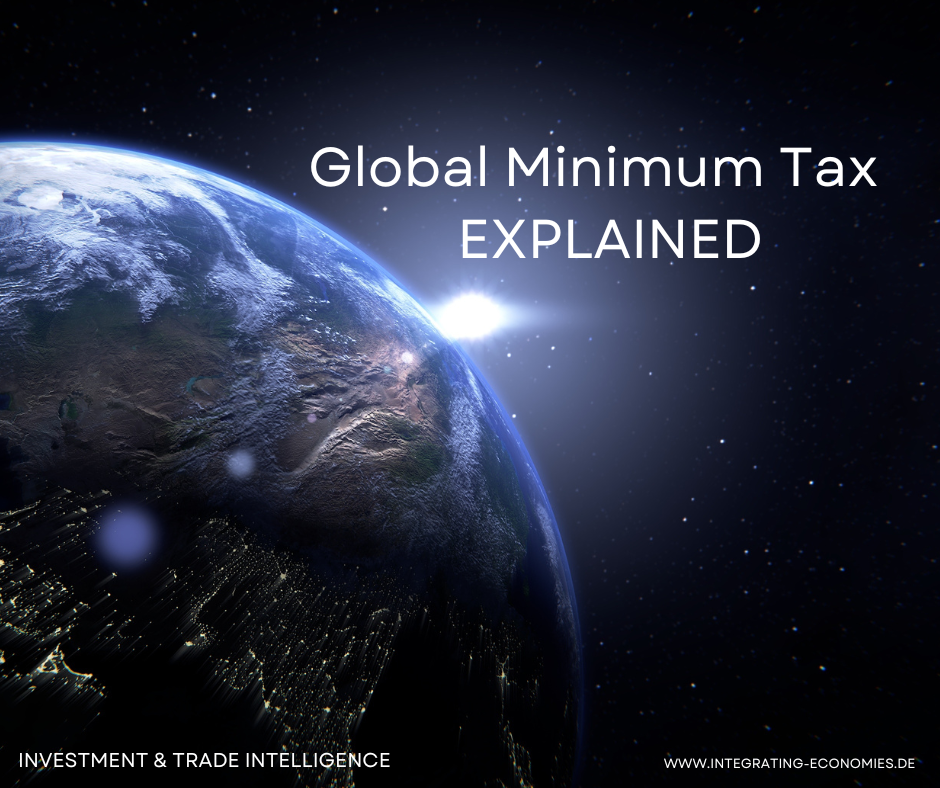
No more zero tax economy? global minimum tax briefly explained.
The Global Minimum Tax: A Milestone in International Taxation
Introduction
The global minimum tax is a groundbreaking initiative aimed at ensuring fairness in international corporate taxation. Spearheaded by the OECD/G20 Inclusive Framework, it introduces a baseline tax rate of 15% for multinational corporations (MNCs), targeting profit shifting and tax base erosion in low-tax jurisdictions. This agreement represents a monumental shift, with over 140 countries collaborating to address longstanding issues in global taxation. Since its agreement in 2021, the journey to implementation has been both complex and transformative, reshaping global tax policies and corporate practices.
Background: Addressing Global Tax Challenges
For decades, multinational corporations have exploited loopholes in tax laws, shifting profits to tax havens to minimize liabilities. This practice, known as base erosion and profit shifting (BEPS), has resulted in significant revenue losses for governments worldwide. According to the OECD, BEPS activities cost nations an estimated $100-$240 billion annually, representing 4-10% of global corporate tax revenues.
Recognizing the need for a unified approach, the OECD launched its BEPS Action Plan in 2013, culminating in the historic agreement on the two-pillar solution in 2021. While Pillar One reallocates taxing rights to market jurisdictions, Pillar Two establishes the global minimum tax to prevent harmful tax competition.
Implementation Journey: Milestones and Challenges
The implementation of the global minimum tax has been a multi-phase process involving extensive negotiations and legislative efforts:
-Consensus in 2021: Over 140 countries agreed to the 15% global minimum tax under the OECD/G20 Inclusive Framework.
-Legislative Actions in 2022: Early adopters like the EU, Canada, and South Korea began drafting domestic legislation to align with the OECD framework. The EU formally adopted the directive in December 2022.
-Implementation Challenges: Political resistance in the U.S., where congressional approval of key elements remains uncertain, and technical complexities in aligning global tax systems have posed significant hurdles.
-2024 Rollout: Countries like Germany and Japan are on track to implement the tax by 2024, setting the stage for widespread adoption.
How the Global Minimum Tax Works
The global minimum tax operates through a top-up mechanism, ensuring that MNCs pay at least 15% tax on profits regardless of their location. Key elements of the framework include:
-Scope: Applies to multinational corporations with annual revenues exceeding €750 million.
-Effective Tax Rate (ETR): If a jurisdiction’s ETR is below 15%, the home country imposes a top-up tax to meet the threshold.
-Inclusion Rule: Ensures that low-taxed profits in one jurisdiction are taxed under global rules.
-Implementation Flexibility: Countries are encouraged to adapt the framework to their domestic legal and administrative systems.
Impact and Early Results
The global minimum tax is poised to deliver transformative impacts on global taxation and corporate behavior. Early results indicate:
-Revenue Gains: OECD estimates suggest that the tax will generate $150 billion in additional global tax revenue annually.
-Reduction in Tax Havens: Low-tax jurisdictions like Ireland and Bermuda are reforming policies to align with the framework, reducing harmful tax competition.
-Corporate Adaptation: MNCs are restructuring operations and reevaluating profit allocation strategies to comply with the new rules.
-Global Equity: Developing countries, often disproportionately affected by BEPS, are expected to benefit significantly from enhanced tax revenues.
Policy Recommendations for Effective Implementation
Successful implementation of the global minimum tax requires coordinated efforts and robust strategies. Key recommendations include:
-Harmonizing Domestic Legislation**: Countries must align local tax laws with OECD guidelines to avoid inconsistencies and enforcement gaps.
-Capacity Building**: Providing technical assistance and resources to developing nations ensures equitable participation and enforcement.
-Strengthening Reporting Mechanisms**: Enhanced transparency through country-by-country reporting will deter tax avoidance.
-International Collaboration**: Cross-border cooperation is essential to resolve disputes and address jurisdictional overlaps.
Conclusion
The global minimum tax represents a historic achievement in international taxation, addressing long-standing challenges of profit shifting and tax competition. Its implementation has the potential to generate substantial revenues, promote fairness, and level the playing field for businesses globally. While challenges remain, continued collaboration and robust policy measures will be pivotal in realizing the full potential of this transformative initiative. In the next insight, we will crtically review the impact of the global minimum tax on SMEs and domestically operating companies in the jurisdictions applying the global minimum tax.




